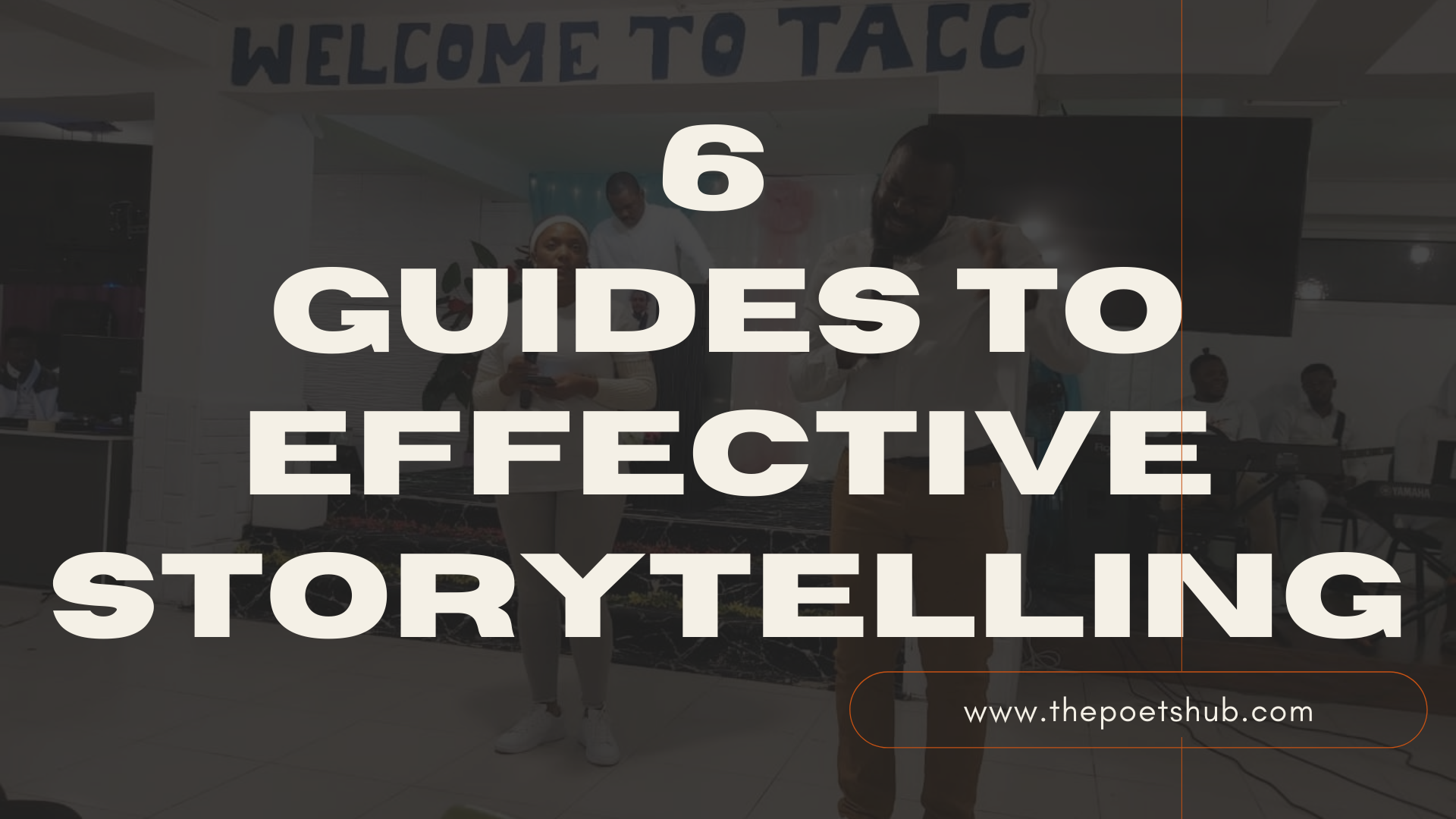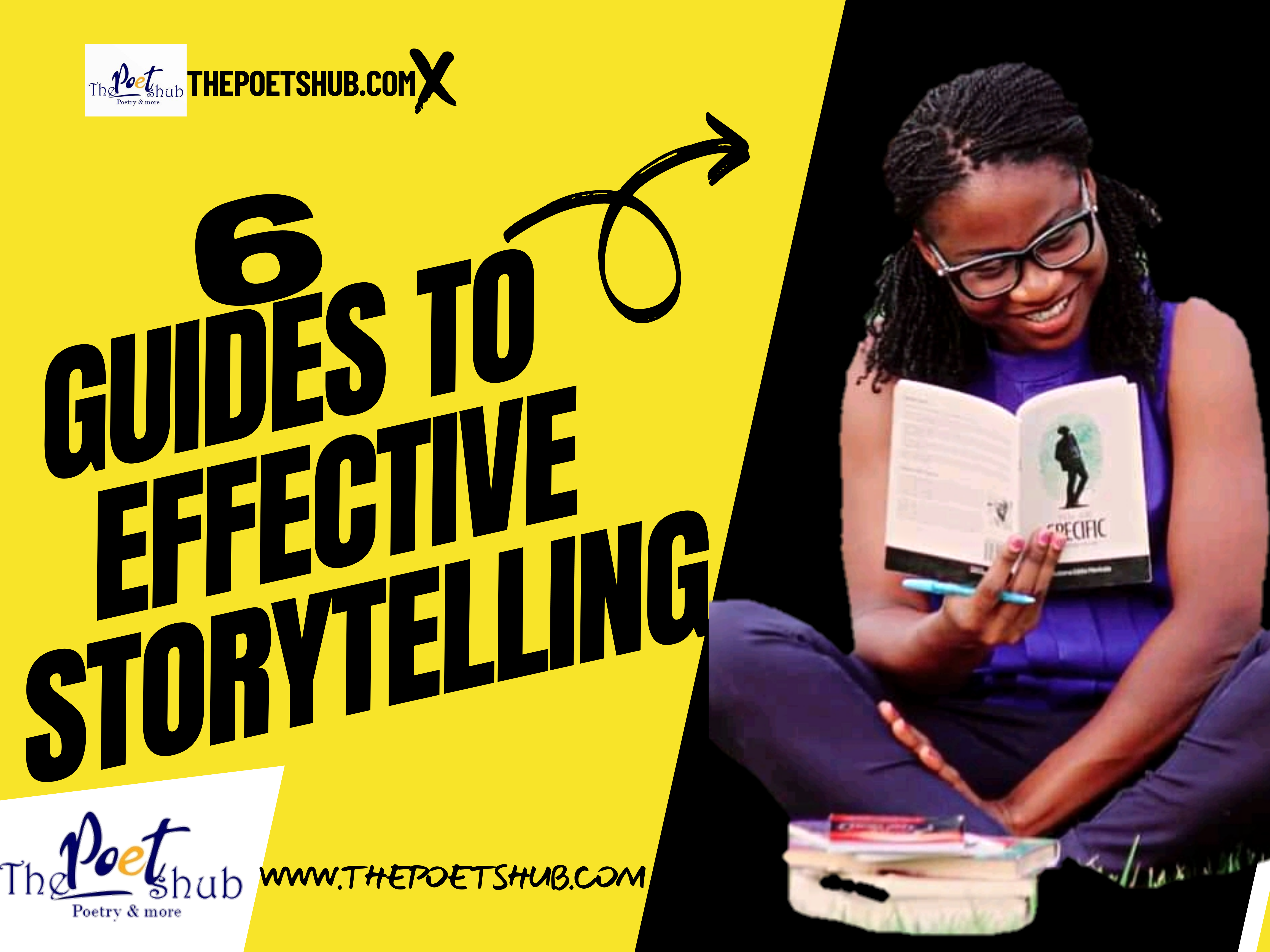Storytellers use specific language to introduce a world to their audience. They build up a world out of imagination and bring to life things that have not life.
Each and every one of is is by the way, a storyteller. Not having the ability to write or build up a story doesn’t exempt you. As the famous Jimmy Neil Smith said;
“We are all storytellers. We all live in a network of stories. There isn’t a stronger connection between people who than storytelling”.
Telling story can really be a very exciting thing to do. It is also a very important and lucrative skill everyone can pursue anytime, anywhere. Storytelling can be used in so many ways to entertain and educate an audience, your friends, through public speaking or any form of elaboration. Therefore, it is vital to know how to effectively tell a story and have effective communication and conversations with your listeners or audience.
What We Seek To Achieve
These outlined tips will help you have a one-on-one conversation and narration with your audience. It would also help you effectively express yourself and enjoy the story of which you are telling to whoever is listening to you.
Read Also: 10 Relevant Principles To Improve Your Writing Skills
The 6 Guides To Effective Storytelling

1. Rehearse Before The Due Date
One thing that will help you get the best of storytelling is, rehearse more than necessary. This will tell you whether you are indeed prepared or not. If you identify any breakages during your rehearsals, then you know you need to work it out. Frequent identification of mistakes and improper delivery will help you make all the corrections you need before the date for the event.
TIP: During rehearsal and you feel a bit down and unsure about how the program or event will go, you can invite couple of friends to join you. If you are able to perform or deliver freely in front of them, then there is 70% possiblity that, you will perform better at the event.
2. Don’t Rush, Relax – You’ve Time
Nervousness can be a great company when about to tell a story to an audience. Most especially when they in a large number. You are also over careful of not messing up or making noticeable mistakes because you want them to enjoy and applaud your delivery. There is always time to back things up. There is absolutely time on your side. Don’t trying to prove your might. Just take slow breaths and control your movement. Just be sure you know whatever story you are going to tell. If you’ve got it intact in your mind, you’re good to go. The public are as human as you are. No need to panic.
Read Also,: Digital Learning Experience For Kids Available On Camp YouTube: How To Get Started
3. Enjoy The Story
Every story carries a motive and a side merit that comes with it. The story for which you are telling to the people could be inspirational, motivational, entertaining, informational or educational. You should allow yourself to enjoy the story as well as your audience. Let them have a feel of what you’re telling them. They need to be in your shoes. While telling the story, make sure to tell it in such a way your audience will have a feel of what you’re telling them. If you become emotional, sad or happy along the delivery, they should feel the same way you’re feeling. Allow them to feel whatever you feel while telling the story. If they don’t, then there’s something wrong somewhere. You’d need to work it out next time.
4. Take A Role In The Story
Unlike movies which are pre-recorded, storytelling could be a fascinating and interesting way to also narrate a live or imaginative events. Take part in the story. Tell the story with corresponding actions and feelings. Add life to your words. Your narration should tickle your audience. Let them feel whatever is it you’re going through. Let them feel for you of they find anything tearful or emotional about any part. Let them also feel excited if anything good or exciting happens to you.
5. Involve Your Audience
In as much as they’re the listeners, you can also give them a chance to take part in the story. You can create images and scenes in your audience’s mind and allow tell them to imagine how it feels. This is a way of giving them a chance to imagine elements. Don’t just tell them everything.
6. Use Actions – Body Expression
You never want to see your audience fall asleep because of bad delivery. Which is why every storyteller must do well to use his or her body, his environment and voice any way possible. This is a quest to jeep your audience alive and hooked up with your delivery. Bad delivery will only make your audience bored, tired and sleepy.
One also needs to know how and when to amplify or lower his or her voice to suit the narration. Good control of your voice can largely help your audience to read your emotions and feel the story.
The use of the various parts of your body will keep your audience alive and attentive.
Read Also: How Telling People Your Good News Can Transform You
End Part
Storytelling is a skill everyone can pursue. It doesn’t take a degree holder to make it work. It can largely help you tell a beautiful tale and have control over your life in general. Telling a story can help you know yourself and others better. You can get better at it by taking up storytelling contests and other community events that seeks for storytellers.
Poet Nazir is a writer and an editor here on ThePoetsHub. Outside this space, he works as a poet, screenwriter, author, relationship adviser and a reader. He is also the founder & lead director of PNSP Studios, a film production firm.











Meg
December 20, 2021 at 8:54 am
Educative and worth reading.